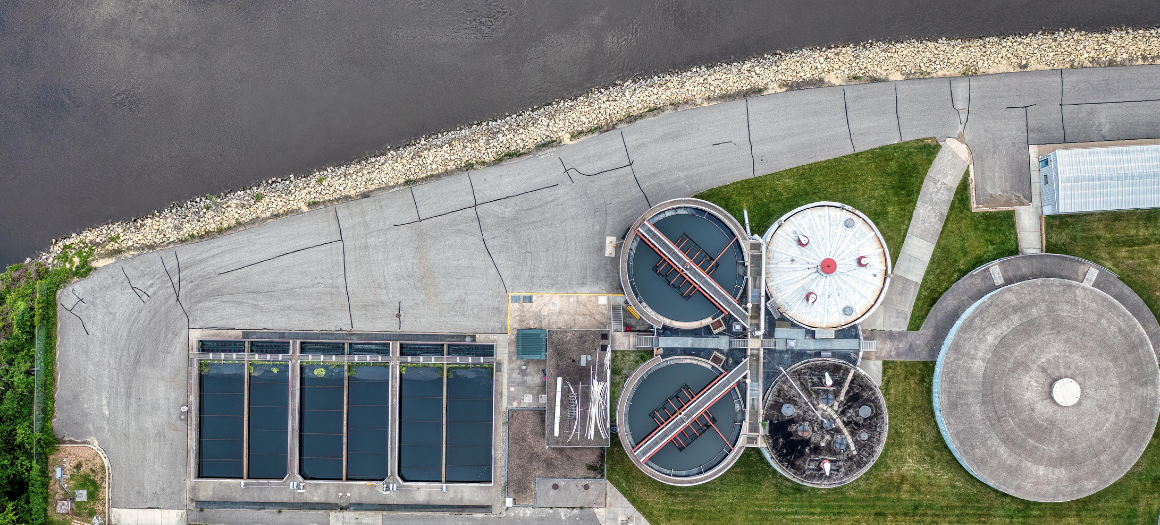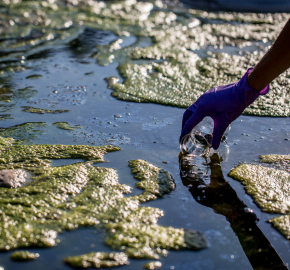The Cunliffe Independent Water Commission Report – lots of ‘steam’ or sensible review?

So, Sir John had his day at the Steam Museum in Brentford announcing the release of his report.
And, as per last week’s leaked headline, it proposes full steam ahead for the abolition of Ofwat, to be merged into a new super water regulator.
The recommendation is to merge OFWAT, the Drinking Water Inspectorate and the ‘watery’ parts of the Environment Agency and Natural England, into a new water regulator for England, with similar in Wales.
The report is also full of patently obvious suggestions, such as having a proper strategic and joined-up vision for water and sewage.
And, yes, we don’t need extra layers of decision-making. That we should plan ahead for water and sewage is obvious.
And it is no surprise that the privatised model remains.
We all want a more effective high-level strategy for water.
But, as we have written elsewhere, our disappointment in governments present and past is that they have averted their eyes from the real problem of water and sewage in this country – a simple failure by government and its regulators to uphold existing largely good law.
That is what has got us into this mess: the regulators didn’t regulate and the enforcers were not enforcing.
And it’s not just us: the Public Accounts Committee (PAC) and the Office for Environmental Protection (OEP) agreed with WildFish.
What needed to happen was for the regulators – Ofwat and the Environment Agency – to do their jobs properly.
You can’t go abolishing regulators willy-nilly unless you have a proper replacement in place – one that is carefully thought-out. The Cunliffe proposal is just that – a proposal.
Has anyone considered where responsibility for agricultural pollution of water will reside – with the new super-regulator, or with the rump of the Environment Agency? And in Wales? And what about the cross-border rivers, the Severn and the Wye?
The only certainty is that the water companies will be rubbing their hands in glee, seeing opportunities everywhere in the coming upheaval.
And that is at a time when Government shows no let-up in its pursuit of economic growth. But growth and the environment are not easy bedfellows – especially when the future depends on proper environmental regulation.
As for ownership – we are agnostic. There will be no radical changes to water company governance and management.
Perhaps more worryingly, Cunliffe takes aim at existing environmental legislation – the Urban Wastewater Treatment Regulations 1994 and the Water Framework Directive. But do we really need new laws and the tearing up of existing law?
We think that this report, produced with the assistance of a Defra ‘secretariat’, contains some dangerous suggestions, partly because the report strays into areas of environmental law which are not really understood properly by its author(s).
Take for instance, the Water Framework Directive. Despite the Office for Environmental Protection’s excoriating report on its implementation by the Environment Agency and Defra, the Cunliffe review thinks it’s the law that is to blame for our failing rivers.
Because the WFD hasn’t succeeded in its aims for protecting and enhancing our freshwater aquatic environment, we are told, it needs rewriting.
Of course, the real reason for failure is the lack of robust implementation. But that is not what the Independent Review has been saying. Blaming the WFD for failures to meet targets is as absurd as concluding that the Theft Act isn’t working because burglary is on the rise.
The review comes up with a plan: why not ‘water down’ the objectives by including public health concerns, as well as-yet-undefined ecological targets?
There’s a conceptual problem with this, of course. What’s good for nature isn’t necessarily good for public amenity. Most obviously, water is abstracted from streams for public consumption. It doesn’t benefit the river. And a river might be clean enough for bathing, but it can still be ecologically depleted.
Nevertheless, it appears that the Cunliffe review recommends amendments to the law to broaden the objectives – we fear this really means reducing environmental protection. How will that be done? Can that ever make sense?
Then there is the key ‘one-out-all-out’ principle in the Water Framework Directive (WFD). Assessment of a water body’s overall health under WFD includes chemical, biological and physical elements. In very basic terms, the river is only as good as its weakest element. The report recommends that this approach is changed. That would mean if a river were devoid of fish but at ‘good’ chemical and physical status, it could be assessed as ‘good’ overall. It would certainly make the Environment Agency’s job easier and keep Defra happy. We could then reverse the decline of rivers in England in one fell swoop, simply by moving the goalposts. It would also be great news for the growth agenda, as impacts on rivers from water company abstractions and sewage pollution would be less influential on overall river health data.
But that’s certainly not a ‘win-win’ for rivers and the public.
The real cause of failure of streams, lakes and rivers to meet accepted standards is not that the targets or parameters are wrong. It is because nowhere near enough has been done to correct the imbalances and address the pressures on our rivers. Instead, as the OEP report identifies, the failure of WFD is a failure of implementation. A failure of the regulators to do their jobs. And a failure of Defra to support them in doing their jobs.
But there is more bad news.
Apparently, the whole legislative framework is too “complex” for the water companies, with around 80 items of water legislation applying in England and Wales. What the report fails to mention is that not all laws apply all the time and many are very specific to the areas they cover. What we don’t need is a bonfire of the legislation or yet another red-tape challenge.
And just because Defra, OWFAT and the Environment Agency have, over years, failed to comply with and enforce the Urban Water Water Treatment Regulations 1994 – as the OEP says – should we really be talking about reviewing those regulations? Shouldn’t we try something simple first, like implementing them properly?
If Defra like what they read in the independent report, supported by the new catchy watchwords of “constrained discretion” for regulators, in this great age of economic growth at all costs, things aren’t going to get better soon. That is because constrained discretion will almost certainly mean even less enforcement where, in practice, there is already far too little intervention by regulators (hence the public outcry at continued pollution of rivers).
What the report also fails to do by virtue of its unwieldy mandate is to catch the nuances of the existing complex relations of local government and water companies, for instance, in addressing the capacity of the system to deal with (and plan ahead for) more housing and the demand for services.
So, what do we think about the report? It has its limited moments.
What it certainly does do is promise upheaval at a time when we should perhaps be focussed on the rivers.




